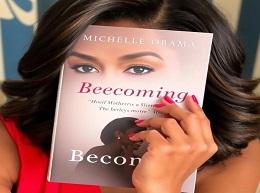Not That Kind of Girl: A Young Woman Tells You What She's 'Learned'

Exploring Lena Dunham's "Not That Kind of Girl": A Detailed Review
Lena Dunham's "Not That Kind of Girl: A Young Woman Tells You What She's 'Learned'" is a memoir that delves into the life and thoughts of one of the most outspoken and creative voices of her generation. Published in 2014, this book offers a collection of personal essays that are as insightful as they are humorous, providing a window into Dunham's experiences as a writer, actor, and director. Known for her groundbreaking work on the television series "Girls," Dunham uses her memoir to explore themes of identity, sexuality, mental health, and the trials and triumphs of young adulthood. This review will explore the various elements that make "Not That Kind of Girl" a compelling and engaging read.
A Candid Voice
From the very first page, Dunham's voice is unmistakably candid and raw. She does not shy away from sharing the intimate details of her life, whether they are embarrassing, painful, or joyous. This openness is one of the book's greatest strengths, as it allows readers to connect with her on a deeply personal level. Dunham's willingness to be vulnerable is evident in chapters like "Love & Sex," where she recounts her awkward and often humorous sexual experiences, and "Body," where she discusses her struggles with body image and self-acceptance.
For instance, in one of the essays, Dunham writes about her first time seeking gynecological advice, a moment many readers will find relatable. She humorously describes her nervousness and the surreal experience of the doctor's office, capturing the blend of fear and curiosity that accompanies such personal milestones. This blend of humor and honesty makes her stories not only engaging but also comforting, as readers see their own experiences reflected in hers.
Navigating Relationships
Relationships, both romantic and platonic, are a central theme in "Not That Kind of Girl." Dunham's reflections on her interactions with friends, lovers, and family members are filled with wit and wisdom. Her essays on friendship, such as "Platonic Bed Sharing: Do’s and Don’ts," offer humorous guidelines on maintaining healthy boundaries while sharing close quarters with friends. This essay, like many others in the book, is peppered with anecdotes that highlight the complexities of friendships and the importance of mutual respect and understanding.
In discussing romantic relationships, Dunham does not hold back on the mistakes and missteps she has made. Her account of a tumultuous relationship in "Take My Virginity (No, Really, Take It)" is both cringe-worthy and enlightening. She explores the vulnerability and confusion that often accompany young love, providing a candid look at the emotional highs and lows of her romantic encounters. Her storytelling is both poignant and entertaining, as she balances the humor of her misadventures with the serious lessons learned.
Struggles with Mental Health
Dunham's exploration of her mental health struggles is one of the most powerful aspects of the memoir. She speaks openly about her experiences with anxiety, obsessive-compulsive disorder, and the challenges of living with these conditions. In essays like "Therapy & Me," Dunham provides a raw and unfiltered account of her journey through various forms of therapy and the impact they have had on her life.
Her honesty about the difficulties of managing mental health is both refreshing and important. Dunham does not present herself as having all the answers; instead, she shares her ongoing journey and the small victories along the way. This candid approach helps to destigmatize mental health issues and encourages readers to seek help and support for their own struggles.
The Creative Process
As a creator of the critically acclaimed show "Girls," Dunham has a wealth of experience in the entertainment industry. Her essays on creativity and the challenges of being a young woman in Hollywood offer valuable insights into the world behind the camera. In "Girl Crush," she talks about her admiration for various female artists and the inspiration they provide. This essay, along with others like "A Director Prepares," gives readers a glimpse into the hard work, passion, and dedication required to succeed in a highly competitive field.
Dunham's reflections on her creative process are both motivational and instructive. She discusses the importance of perseverance and the need to stay true to one's vision, even in the face of criticism and self-doubt. Her story of creating "Girls" and the subsequent media scrutiny highlights the challenges of maintaining artistic integrity while navigating public expectations.
Humor and Self-Deprecation
One of the most endearing qualities of "Not That Kind of Girl" is Dunham's ability to laugh at herself. Her self-deprecating humor makes her stories relatable and enjoyable to read. Whether she's recounting her awkward teenage years or her adult misadventures, Dunham's humor shines through, making even the most uncomfortable moments entertaining.
For example, in the essay "Diet Is a Four-Letter Word," Dunham humorously chronicles her attempts at various fad diets and her ultimate realization that self-acceptance is more important than fitting into societal standards of beauty. Her witty commentary on the absurdity of diet culture is both funny and thought-provoking, encouraging readers to embrace their own bodies.
Feminism and Empowerment
Dunham's memoir is also a strong feminist statement, advocating for women's rights and empowerment. She discusses the importance of female representation in media and the need for women to support one another. Her essays often touch on the struggles women face in a patriarchal society and the ways in which they can overcome these challenges.
In "Little Leather Gloves," Dunham reflects on her experiences with sexism in the workplace and the importance of speaking out against injustice. Her candid discussions about the difficulties of being a woman in a male-dominated industry provide a powerful commentary on gender inequality and the need for systemic change.
Criticisms and Controversies
While "Not That Kind of Girl" has been praised for its honesty and humor, it has also faced its share of criticism. Some readers have found Dunham's privileged background to be a point of contention, arguing that her experiences are not representative of the average young woman. Others have taken issue with certain anecdotes and their potential to offend.
However, Dunham addresses these criticisms with the same candor that characterizes her memoir. She acknowledges her privilege and uses her platform to highlight issues that affect a broader audience. Her willingness to engage with her critics and learn from her mistakes is a testament to her growth and maturity as both a writer and a public figure.
"Not That Kind of Girl: A Young Woman Tells You What She's 'Learned'" is a captivating and thought-provoking memoir that offers a deep dive into the life of Lena Dunham. Through her candid and humorous essays, Dunham provides readers with a window into her personal experiences and the lessons she has learned along the way. Her exploration of relationships, mental health, creativity, and feminism is both entertaining and enlightening, making the memoir a valuable read for anyone navigating the complexities of young adulthood.
Dunham's ability to blend humor with serious reflection makes "Not That Kind of Girl" a compelling and relatable memoir. Her willingness to share her vulnerabilities and mistakes, combined with her insightful commentary on broader societal issues, ensures that readers will find both entertainment and inspiration within its pages. Whether you are a fan of her work or simply looking for an engaging and thought-provoking read, Lena Dunham's memoir is well worth your time.













